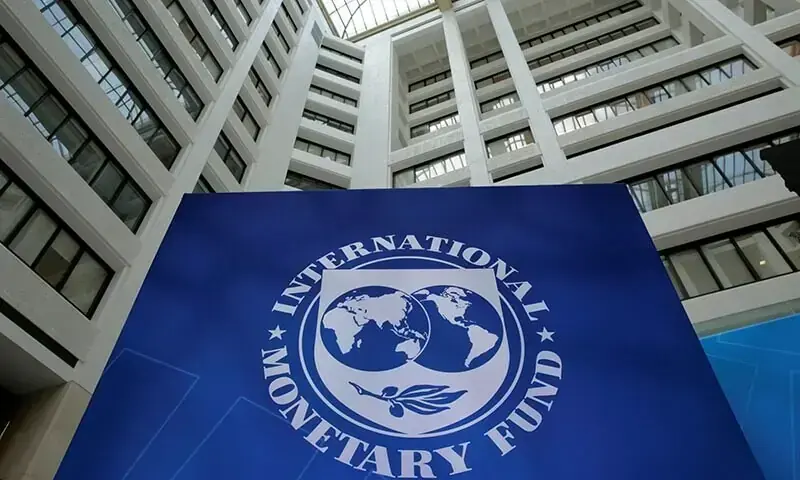The International Monetary Fund (IMF) said on Wednesday it had reached a staff-level agreement (SLA) with Pakistan on its lending programmes, which would allow the country to access $1.2 billion following approval by the fund’s board.
If approved, the IMF will provide Pakistan with $1 billion under its Extended Fund Facility (EFF) and $200 million under its Resilience and Sustainability Fund (RSF), bringing total disbursements under the two agreements to about $3.3 billion.
Last week, an IMF mission led by Iva Petrova concluded talks with Pakistani authorities on the second review of the SAF (agreed in 2024 to shore up the economy after a severe financial crisis) and the first for the RSF climate loan.
In a statement issued Wednesday morning by the Fund, Petrova said the staff-level agreement remained subject to approval by the IMF Executive Board.
“With the support of the EFF, Pakistan’s economic program is strengthening macroeconomic stability and rebuilding market confidence,” he said.
“The recovery continues its course: the FY25 current account posted a surplus, the first in 14 years, the fiscal primary balance exceeded the program target, inflation remained contained, external buffers strengthened and financial conditions improved as sovereign spreads narrowed significantly,” he said.
However, the IMF official added, the recent floods had affected the country’s prospects, particularly the agricultural sector, reducing the projected gross domestic product (GDP) for FY26 to around 3.25-3.5 per cent.
“The floods underline Pakistan’s high vulnerability to natural disasters and significant climate-related risks, and the continued need to build climate resilience,” Petrova said.
He also said the Fund wanted to express its solidarity with those affected by the recent floods, adding that it was “grateful to the Pakistani authorities, the private sector and development partners for the many fruitful discussions and their hospitality throughout this mission.”
‘Pakistan reaffirmed its commitment to maintaining prudent macroeconomic policies while reforms progress’
The IMF official also highlighted progress on Pakistan’s policy priorities, saying: “The authorities reaffirmed their commitment to the programs supported by the SAF and RSF, and to maintaining sound and prudent macroeconomic policies while advancing ongoing structural reforms.”
He said the authorities remained committed to achieving the FY26 primary budget surplus of 1.6 percent of GDP, anchored on sustained efforts to mobilize revenue through tax policies and compliance measures, and “stand ready to take necessary actions should revenue shortfalls jeopardize program objectives.”
“At the same time, authorities are assessing flood damage and providing urgent relief in affected provinces through reallocations in provincial and federal budgets,” Petrova said.
He also noted that social protection remained a key pillar of the EFF-supported program and that authorities were working to improve the generosity, coverage and administrative capacity of the Benazir Income Support Program (BISP).
“They are also committed to increasing non-BISP health and education spending at both the federal and provincial levels to support inclusive growth and safeguard vulnerable populations,” he said.
He further said that efforts were being made to improve revenue mobilization, expand burden sharing between the federal and provincial governments and strengthen public financial management.
“In particular, recognizing the vital role of provinces in domestic revenue mobilization, federal authorities will continue to deepen collaboration with their provincial counterparts.
“The authorities are also making important progress in strengthening tax policy design, with the newly created tax policy office set to lead medium-term reforms to simplify the tax code and reduce reliance on ad hoc measures,” he said.
The IMF official noted that the State Bank of Pakistan (SBP) was committed to adopting a prudent monetary policy stance, guided by incoming data, including the impact of the recent floods and the evolution of the economic recovery, to ensure that inflation remains durably within its target range of five to seven per cent.
“While the floods are likely to have a temporary impact on prices, the SBP stands ready to adjust its policy stance should price pressures intensify or inflation expectations dampen. While the sustained buildup of international reserves is welcome, additional measures are needed to deepen the foreign exchange market to facilitate transactions, support price discovery and cushion shocks. external shocks,” he said.
On the issue of circular debt, he said Pakistan remained committed to preventing its accumulation through timely tariff adjustments ensuring cost recovery and maintaining a progressive tariff structure.
“Structural reforms continue to focus on improving the performance, efficiency and governance of distribution companies, including through privatization; improving the transmission system; privatizing inefficient generation companies; and completing the transition to a competitive electricity market,” Petrova said.
He further said that the authorities were making progress in implementing structural reforms aimed at boosting productivity, strengthening governance and improving the business environment to support private sector development.
“Greater efforts are needed to advance the state-owned enterprise reform agenda and reduce the state’s footprint in the economy. The authorities are also planning reforms to reduce government intervention in commodity markets to foster a productive, diversified and internationally competitive agricultural sector that meets food security needs. Efforts to boost international trade continue, including with the implementation of the new tariff policy national,” he said.
Petrova went on to say that the recent floods and those in 2022 had underlined the need to build Pakistan’s climate resilience.
“Policies supported by RSF and aligned with national commitments are helping to strengthen resilience, including recently implemented reforms to promote green mobility and the decarbonization of transport,” he noted.
“The authorities remain committed to advancing future reforms, including strengthening the climate information architecture and financial risk management, improving the resilience of the water system, establishing a framework for coordinated disaster risk financing, and aligning energy sector reforms with national mitigation commitments,” he added.
More to follow







